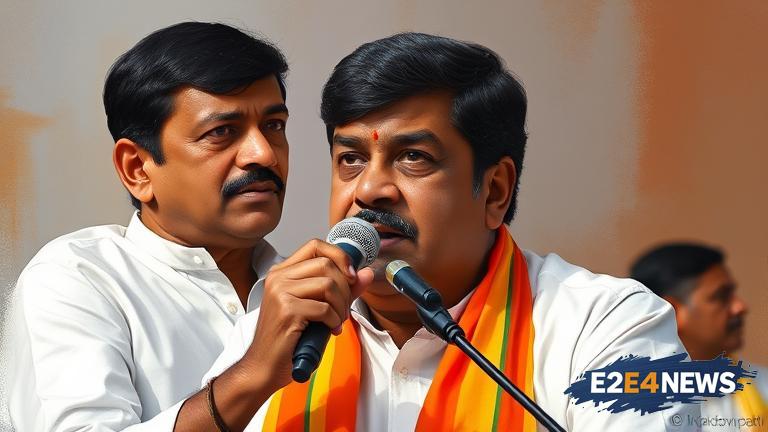In a recent turn of events, Karnataka Congress leader DK Shivakumar has apologized for attending a prayer meeting organized by the Rashtriya Swayamsevak Sangh (RSS), a right-wing Hindu nationalist organization. The apology comes after Shivakumar faced backlash from his own party members and opposition leaders for his attendance at the event. Shivakumar, who is also the president of the Karnataka Pradesh Congress Committee, stated that he had attended the meeting as a mark of respect for the RSS leader who had passed away. However, he acknowledged that his actions may have been perceived as controversial and hurtful to some members of his party. The Congress leader reiterated his commitment to the party and its ideology, stating that he would ‘die as a Congressman’. Shivakumar’s apology has been seen as an attempt to placate his party members and maintain unity within the Congress ranks. The incident has sparked a debate about the relationship between the Congress party and the RSS, with some leaders calling for greater clarity on the party’s stance towards the organization. The RSS has been a topic of controversy in Indian politics, with some parties accusing it of promoting a divisive and exclusionary ideology. The Congress party has historically been critical of the RSS, but some leaders have also sought to engage with the organization in an effort to build bridges and expand the party’s base. Shivakumar’s attendance at the RSS prayer meeting was seen as a departure from the party’s traditional stance, and his apology is an attempt to reassure party members that he remains committed to the Congress ideology. The incident has also raised questions about the role of religion in Indian politics, with some leaders arguing that politicians should not attend events organized by organizations with a specific religious or ideological agenda. Others have argued that politicians should be free to attend events that promote social harmony and community building, regardless of the organization’s ideology. The controversy surrounding Shivakumar’s attendance at the RSS prayer meeting has highlighted the complexities of Indian politics, where leaders must navigate a delicate balance between different ideologies, religions, and communities. The incident has also sparked a debate about the importance of secularism in Indian politics, with some leaders arguing that politicians should prioritize the principles of secularism and inclusivity. The Congress party has traditionally been seen as a secular party, but the incident has raised questions about the party’s commitment to these principles. Shivakumar’s apology has been welcomed by some party members, who see it as a sign of his commitment to the party and its ideology. However, others have criticized the apology, arguing that it does not go far enough in addressing the concerns of party members. The incident has also sparked a debate about the role of leadership in Indian politics, with some leaders arguing that politicians should be held to a higher standard of accountability and transparency. The controversy surrounding Shivakumar’s attendance at the RSS prayer meeting has highlighted the need for greater clarity and transparency in Indian politics, where leaders must navigate complex webs of ideology, religion, and community. The incident has also raised questions about the future of the Congress party, which has been struggling to regain its footing in Indian politics. The party has faced numerous challenges in recent years, including internal divisions and external pressures. The incident has sparked a debate about the party’s strategy and direction, with some leaders arguing that the party needs to adopt a more inclusive and secular approach to politics. Others have argued that the party should focus on building a stronger grassroots presence and engaging with local communities. The controversy surrounding Shivakumar’s attendance at the RSS prayer meeting has highlighted the complexities and challenges of Indian politics, where leaders must navigate a delicate balance between different ideologies, religions, and communities. The incident has also sparked a debate about the importance of accountability and transparency in Indian politics, where leaders must be held to a higher standard of integrity and honesty.
